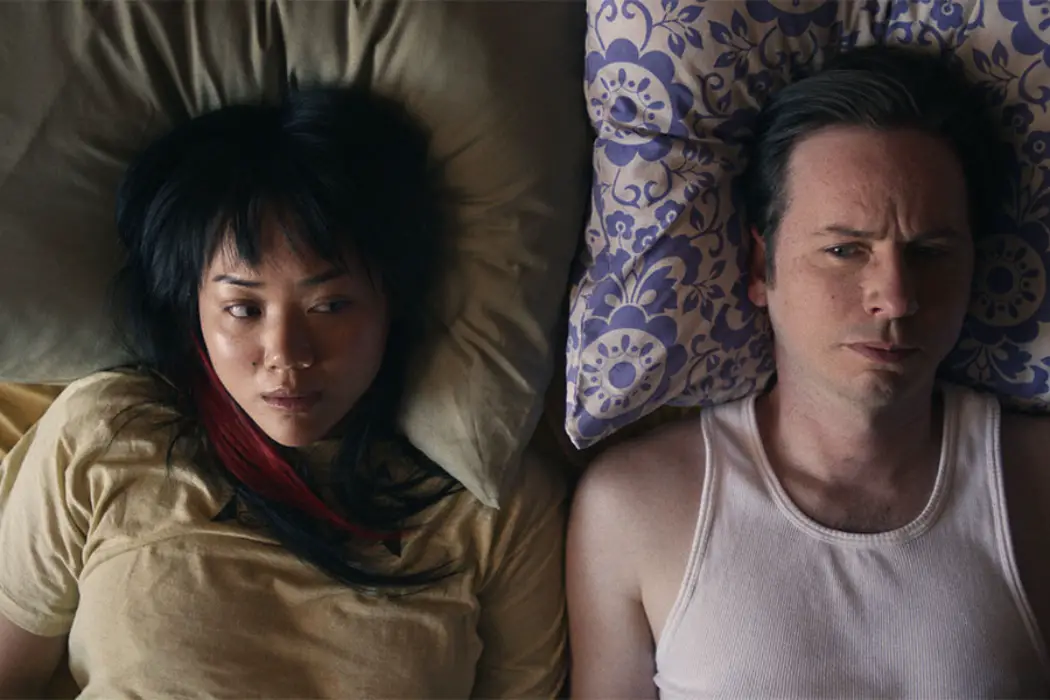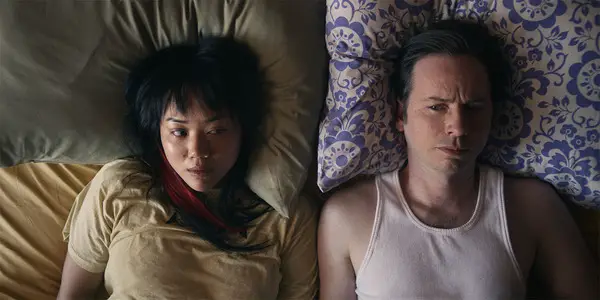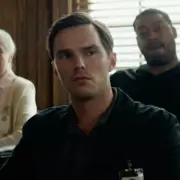Toronto International Film Festival 2024: Director/Writer Sook-Yin Lee Of PAYING FOR IT

Wilson is a cinema enthusiast based out of Toronto, Canada.…
Sook-Yin Lee has long been a staple of Toronto (and Canadian) popular culture, having started her career as a video jockey for local television station MuchMusic. Since transitioning from broadcasting, she’s had an illustrious career as a filmmaker, and has crafted her most personal work yet, with Paying For It. Adapting Chester Brown‘s graphic novel of the same name, and implementing her own life and relationship with Brown as part of the story, Lee really does bear it all. She spoke to Film Inquiry about the film prior to its world premiere at this year’s edition of the Toronto International Film Festival.
Wilson Kwong for Film Inquiry: How did you find adapting your own life into a narrative piece of filmmaking?
Sook-Yin Lee: I’m very used to drawing from life experiences when I make movies, even when I make a fictional movie. It always comes from a real lived experience, something of which I have witnessed or experienced myself, which just helps me get into that space. So in this case, enough time had passed and there was enough living and objectivity because I have worked within the realm of auto fiction a lot. It was not too difficult at all. I think as a person, I was born extremely stressed out. There was high drama when I was an embryo, so my mom was going through intense stuff and I think I came into the world with a high degree of tolerance to stress and emotionality, and so I’ve been reared in that environment. To be able to tell stories is almost an act of making sense and problem solving on a personal level. So to actually make this movie was not difficult.
What about the adaptation process?
Sook-Yin Lee: When Chester Brown‘s graphic novel, Paying For It, came out, I just thought it was so brilliant. It spoke to me on so many levels about not only sex worker rights, but by extension, labor rights, gay and queer rights, people of colour rights, women’s rights. It all was under the umbrella of human rights, which is why I wanted to adapt it. But I was confounded by the material [because] it’s a graphic novel and it’s very episodic. The last fifth of the book is an appendices and his sort of academic and historic notes, all of which are very crucial to what is essentially a political treatise. But I was more interested in telling a movie that hits the heart and funny bone, trying to unlock all the minutiae and marry it to a different form, which was very difficult. It was only until I realized that what would unlock it into a movie was if I expanded the canvas. And I was a character in Chester‘s original graphic novel, but he really didn’t reveal very much of our life together because he was wanting to protect my identity as well as the identity of his friends and sex workers he visited. I realized that I wanted to incorporate what was happening in our lives, and to revisit that.

As you were revisiting your own past in the film, what was your reaction to that? Were you exactly the way you remembered yourself?
Sook-Yin Lee: So I called the couple Chester and Sonny, I didn’t call her by my own name. I tried my best to uphold how Chester depicts himself in his memoir. And of course, that’s already through a lens, so his memoir is himself looking through himself. And I’m looking at him through himself, but trying to uphold those aspects of him and trying to uphold what he feels is important that he wants to convey. Whereas I call myself Sonny, and that gives me more artistic license within the realm of taking real events and fictionalizing them, crafting them more in a story. I also knew that she wasn’t going to be exactly me. She would be a combination. Emily Lê, who plays me, is a very different person. We have similarities and we have differences, and I knew that it would be a combination of the both
Can you talk about the casting process, and how you ended up choosing actors for both Chester and Sonny?
Sook-Yin Lee: When I was casting, I was looking for an essence of Chester and an essence of me, and I saw hundreds of people for both roles and only two for Chester actually imbibed him to interpret him, with the essence that I know of Chester. He’s a very genuine, honest, smart and logical, pragmatic person. And only two people I saw auditioned for him could imbibe him. And with me similarly, I saw so many actors and what I was looking for was something intangible, something that had that spark, that essence of me. And Emily truly comes from an underground culture, and that’s not something you can fabricate.
What about the shooting process. It’s just so neat seeing Toronto locations on film (as someone from Toronto). How did you choose which locations to include?
Sook-Yin Lee: I wanted to depict the kind of Toronto that I know. And similar to so many cities where our cities are disappearing and getting gentrified, I really wanted to find spaces in Toronto that were not touristy, that wasn’t the CN Tower. But the spaces that I love that are ramshackled and raw. Places that are part of the Toronto of dive bars and the spaces that I would go to. And I had a limited budget. I said, my house, this is where the real life events happen, let’s shoot here. It’s cheap and it’s pretty already art directed. So when you watch a documentary and you see an extraordinary place, it emanates something about life you can’t fabricate. Even the best production designer would have a hard time coming up with those spaces. Oftentimes, production designers will make something that looks really artificial. So I really wanted to find spaces that we could embrace for real. And so I contacted spaces that I knew that were either apartments of my friends, or neighbourhood shops I knew.
Has Chester, in real life, or other people depicted in the film actually seen Paying For It? And if so, what has their reaction to the film been like?
Sook-Yin Lee: So all of the people from my life and all of the various dates and stuff, I really fictionalized them a lot. They’re not named after those people, but there’s a nugget of inspiration in various people. I’m trying to think of anyone who’s seen it. Chester‘s seen it, Chester loves it. I’m sure his inner circle of comic buds will see it. Unfortunately, the whole movie sold out in 10 seconds, and they had given me a couple, and I said to the production: “I only need one for me, please give my other additional passes to the cast and crew.” What’s exciting is we’re going to show it at TIFF, but then we’re going to have a big launch.
Film Inquiry would like to thank Sook-Yin Lee for taking the time to speak with us!
Does content like this matter to you?
Become a Member and support film journalism. Unlock access to all of Film Inquiry`s great articles. Join a community of like-minded readers who are passionate about cinema - get access to our private members Network, give back to independent filmmakers, and more.
Wilson is a cinema enthusiast based out of Toronto, Canada. He escapes from his day job by writing random thoughts about cinema on the internet. Although he has a longstanding penchant for Hong Kong cinema, he considers himself to be an advocate for Asian cinema in general. He has been attending the Toronto International Film Festival every year since 2005, and more of his work can be found on his website: www.wilson-kwong.com.













